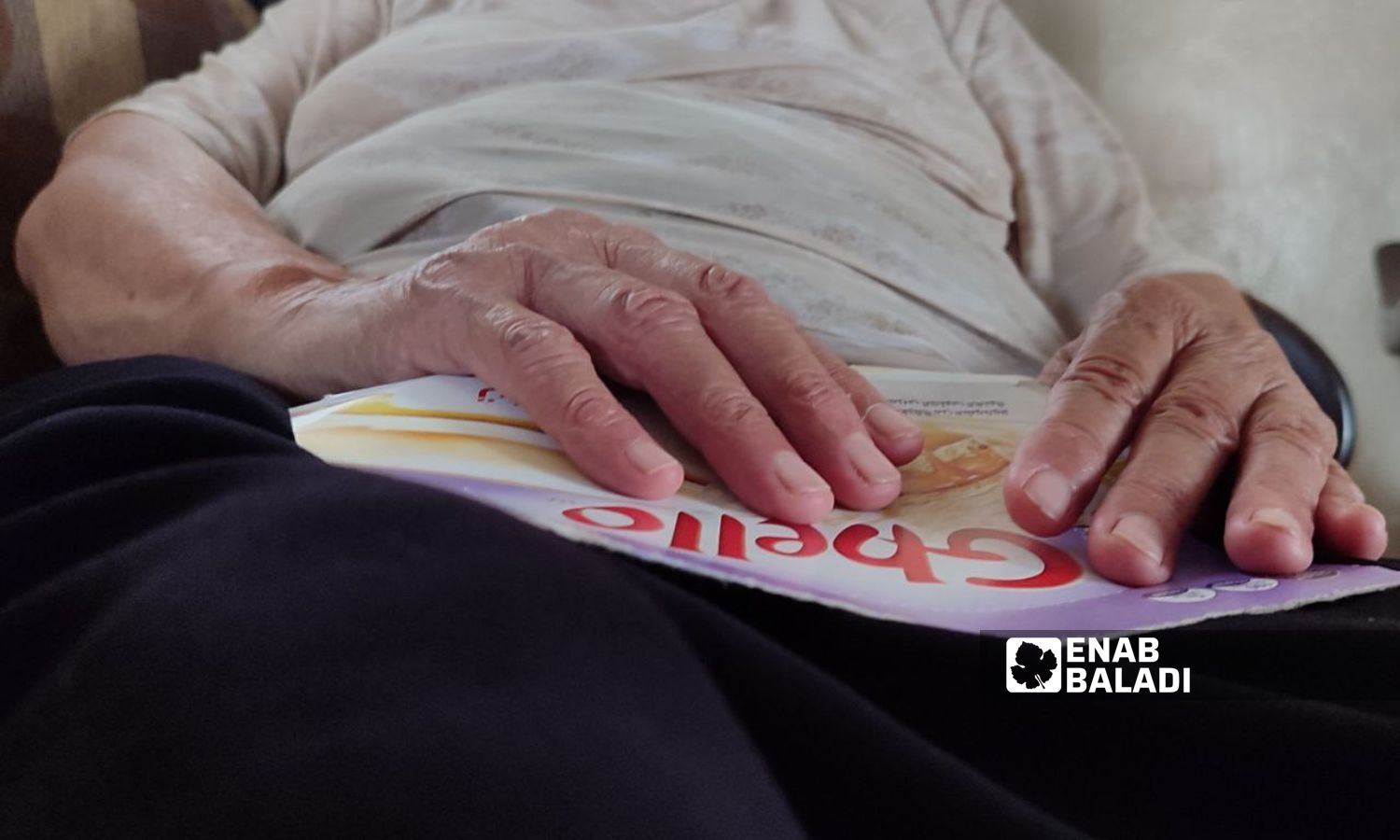



Under a window overlooking a small courtyard that separates her building from an adjacent one, the seventy-year-old Umm Fadi sits, waiting for a breeze while wiping her sweat with one hand, and with the other, she holds a cardboard paper to fan her face lightly, then she lets it go when her hand gets tired.
The woman, whose battery used to generate electricity expired more than two years ago—barely sufficient now to light a small dim LED light for less than an hour—cannot think of buying a battery-operated fan, which costs at least 450,000 Syrian pounds and needs a battery priced similarly.
Umm Fadi, like most of the elderly, never attended school and has spent her life doing household chores. She currently lives in Latakia on her deceased husband’s pension, which does not exceed 150,000 Syrian pounds (ten dollars), not even enough to cover her blood pressure and diabetes medications. She lives on food purchased for her by her married children who live nearby.
The situation improves slightly in the evening, when the seventy-something-year-old struggles to climb the three floors to the rooftop, where she sits on a chair she places there to catch some breeze. However, everything comes at a cost—the chair is uncomfortable, and she wishes she could lie down to rest her exhausted body, but she has no other option. She stays there until her bedtime, which is determined by the humidity.
In her home, she does not have many comfortable cotton clothes and has to squeeze her body into a long fabric skirt and a long cotton blouse. Once again, money is an obstacle to buying comfortable clothes.
As she mentioned, her children barely feed their families, and their clothes are all old. She cannot ask them to buy new clothes for her, while her husband’s pension is not enough to buy a loose wide cotton garment that costs over 300,000 pounds.
Umm Fadi spends her days looking for a summer breeze and some warmth in winter, just like most residents in Syria.
The scene of Umm Fadi summarizes the situation of the elderly in Latakia, where the humidity has exceeded 85%, and almost complete absence of electricity, which is only available for more than an hour in four periods daily, sometimes for only half an hour at noon amid the peak heat.
The heat impacts the elderly more severely at a time when most families cannot resort to costly solar energy, even for the interest-free loan announced for installing solar energy with a 40 million-pound ceiling, which is unattainable due to high monthly installments.
With the onset of summer, the suffering of people in Syria, in general, and in regime-controlled areas, especially, increases amid a deteriorating economic and living reality and weak salaries. The minimum government wage is 279,000 pounds (one dollar equals 14,800 pounds).
Syria is witnessing a growing number of elderly people, estimated at about 7.2% of the population in 2015, equivalent to 1.7 million people, according to estimates by the United Nations Economic and Social Commission for Western Asia (ESCWA).
ESCWA predicted that this percentage would reach 13% by 2050, equivalent to 5.7 million people.
Elderly people’s care homes in regime-controlled areas number 20 licensed private homes. There are two government ones, Al-Karamah in Damascus and Mabra Al-Awqaf in Aleppo, run in cooperation with the local community and relying mainly on donations.
The costs of accommodating the elderly in these homes have risen to around 18 million pounds a year for each resident, not including medicines and surgical procedures costs.
if you think the article contain wrong information or you have additional details Send Correction